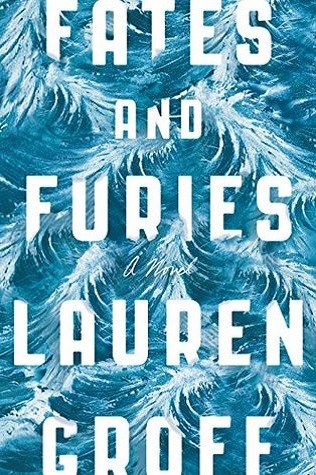More on this book
Community
Kindle Notes & Highlights
IT WAS DAWN, a thin pale spreading over the distance. Mathilde was shaking, but not from cold. She pitied them, the cowardly ones. Because she, too, despaired; she, too, was blinded by the dark, but to turn your back is too easy. Cheating. The handful, the cold glass, the swallow. The chair kicked back, the burn on the skin of the throat. A minute of pain, then stillness. Despicable, such lack of pride. Better to feel it all. Better the long, slow burn.
Mathilde’s heart was a bitter one, vengeful and quick. [True.]
Mathilde’s heart was a kindly ...
This highlight has been truncated due to consecutive passage length restrictions.
Mathilde thought of Land’s gorgeous back, muscled and long, the spine a delicate splitting serration. It had been Lotto’s back as well. The lips, the cheekbones, the eyelashes, all the same. The ghost manifest in the living flesh. She could give ...
This highlight has been truncated due to consecutive passage length restrictions.
Chollie would be at Land’s children’s graduations, would drive up in the Porsches he’d give them. Land would be loved. “That’s not nothing,” she said aloud. The dog woke, screaming at the smoke. When Mathilde looked up from the charred mess, the small, dark girl she’d summoned had gone.
draft of The Springs. It would be worth more than this entire house. He wouldn’t find it. It was no longer kin of the other plays, having left Mathilde decades earlier one dawn, filched by the hand of a young man who had woken in shame and fury in an alien house, who had let the dog out in the dark to pee and made fruit salad and coffee without turning on the light. He had slid the papers under his shirt, had warmed them with his skin as he drove back to the city. In the end, it didn’t matter. Land had had a claim as strong as any, it is true; a boy who had explained the theft in a letter he’d
...more
The look he gave her. Christ. It was as if he could see into her dark heart and was sickened to death by what he saw.
She saw his face again and again as she drove back fast through the night to get home to her house, her dog. How ugly a handsome man can sometimes be. Perhaps Land was a far better actor than she’d ever believed him to be; better, for sure, than Lotto had been. Well, she knew what that was like.
EMPTY THEATERS ARE MORE SILENT than other empty places. When theaters sleep, they dream of noise and light and motion.
LATER, UNDER HER NOM DE PLUME, she wrote a play called Volumnia. It played in a fifty-seat theater. She gave it her all. [She shouldn’t have been surprised when nobody came.]
SO LONG AGO, and she had been so little then. There was a long darkness between what she remembered and the results. There was something ajar here. A four-year-old is still an infant. It seemed too harsh to hate a baby for being a baby, for making a baby’s mistake. Perhaps it was always there; perhaps it was made in explanation, but all along she had held within her a second story underneath the first, waging a terrible and silent battle with her certainty. She had to believe of herself that the better story was the true one, even if the worse was insistent.
The still knot of him at the bottom. Thrown laundry.
This was the bad version. This version was what later events told her had happened. It was as real as the other.
All that remained were the facts. Before it all happened, she had been so beloved. Afterward, love had been withdrawn. And she had pushed or she hadn’t; the result was all the same. There had been no forgiveness for her. But she’d been so very young. And how was it possible, how could parents do this, how could she not have been forgiven?
Scrap of blue midday in the London dusk. Ages away from what had been most deeply lived. Day on a rocky beach, creatures in the tide pool. All those ordinary afternoons, listening to footsteps in the beams of the house and knowing the feeling behind them. Because it’s true: more than the highlights, the bright events, it was in the small and the daily where she’d found life.
Through this clear window, she could see how good it all had been. She had no regrets. [That’s not true, Mathilde; the whisper in the ear.] Oh. Christ. Yes, there was one. Solitary, gleaming. A regret. It was that, all her life, she had said no.


